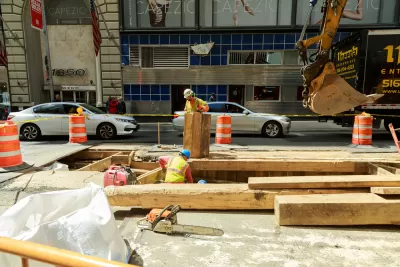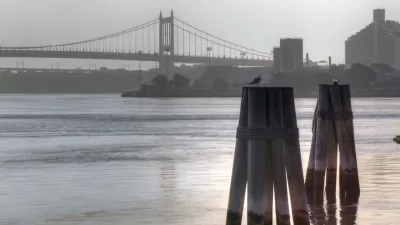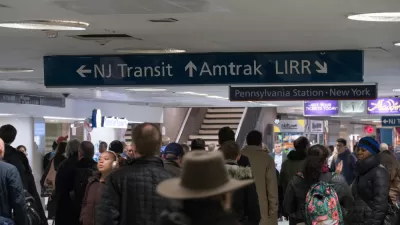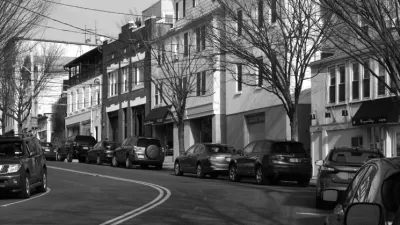Infrastructure backlogs: burden or opportunity?

Matt Chaban, policy director at the Center for an Urban Future, argues in Crain's that New York should take its maintenance and repair backlog as an opportunity to create good-paying jobs.
From water mains to public buildings, much of the infrastructure in use in the city today is 60-80 years old, Chaban explains. New York would need to spend $47 billion just to reach a state of good repair across the board, he writes, noting that "any major expansion or sweeping modernization would cost billions more."
While the de Blasio administration is investing in infrastructure maintenance, the piece details just how short those efforts fall of addressing the scale of the problem, and suggests several schemes to raise more funds:
Smart rezonings that tie growth to public improvements should be part of the equation. The Move New York congestion pricing plan is another idea whose time has come, as are storm-water management fees, which would encourage landlords to take some of the burdens off the sewers. Public infrastructure dollars also need to go further than they do today. The state benefits from design-build contracts that can cut costs and time, but Albany should extend the same authority to New York City, which could save billions over the decade ahead.
FULL STORY: NYC's infrastructure woes run deeper than the subway

Trump Administration Could Effectively End Housing Voucher Program
Federal officials are eyeing major cuts to the Section 8 program that helps millions of low-income households pay rent.

Planetizen Federal Action Tracker
A weekly monitor of how Trump’s orders and actions are impacting planners and planning in America.

Ken Jennings Launches Transit Web Series
The Jeopardy champ wants you to ride public transit.

California Invests Additional $5M in Electric School Buses
The state wants to electrify all of its school bus fleets by 2035.

Austin Launches $2M Homelessness Prevention Fund
A new grant program from the city’s Homeless Strategy Office will fund rental assistance and supportive services.

Alabama School Forestry Initiative Brings Trees to Schoolyards
Trees can improve physical and mental health for students and commnity members.
Urban Design for Planners 1: Software Tools
This six-course series explores essential urban design concepts using open source software and equips planners with the tools they need to participate fully in the urban design process.
Planning for Universal Design
Learn the tools for implementing Universal Design in planning regulations.
Ada County Highway District
Clanton & Associates, Inc.
Jessamine County Fiscal Court
Institute for Housing and Urban Development Studies (IHS)
City of Grandview
Harvard GSD Executive Education
Toledo-Lucas County Plan Commissions
Salt Lake City
NYU Wagner Graduate School of Public Service





























